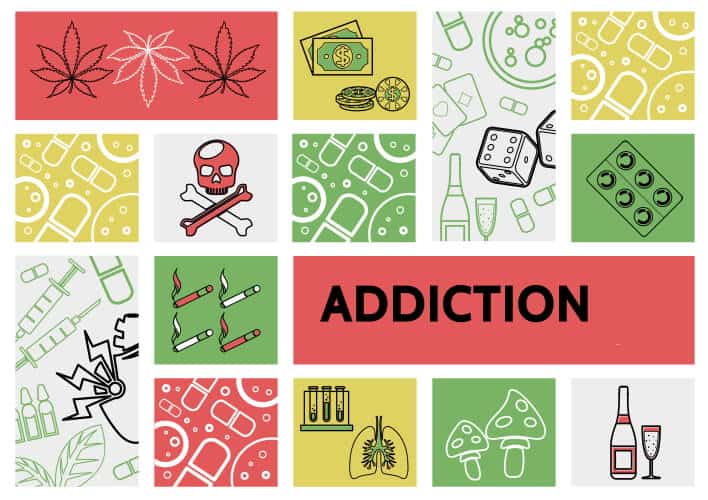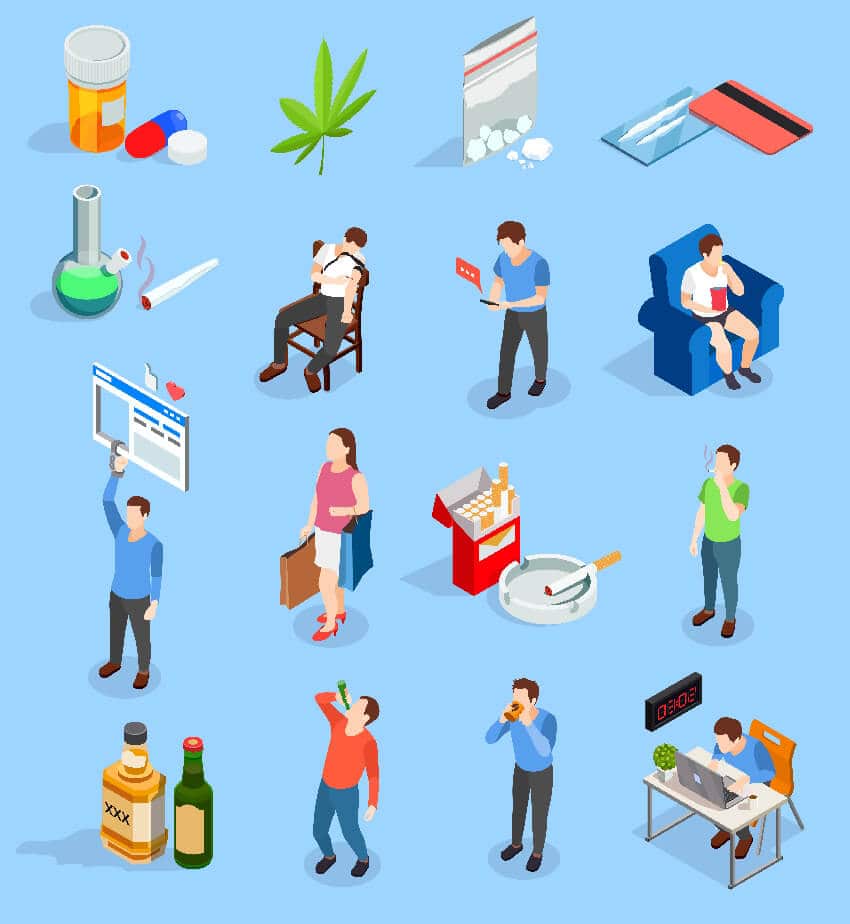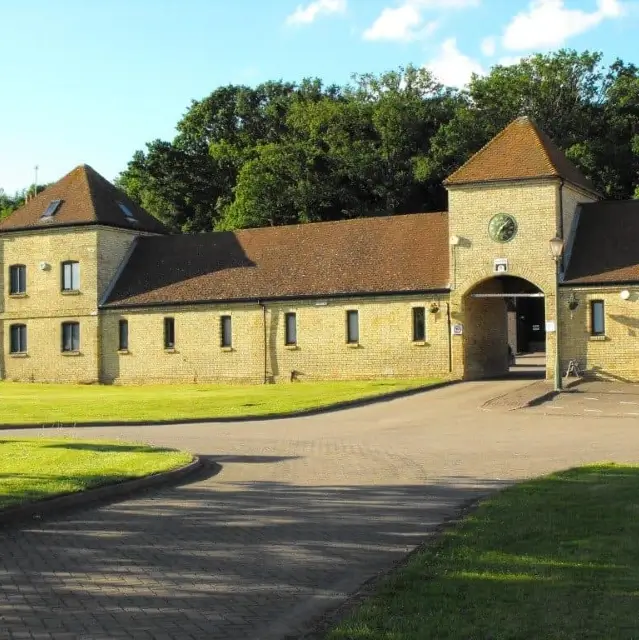Getting Help for Addiction
Why does an addict not want help?
Anyone with an addiction will find that their life is being affected by their addictive behaviour and thinking. Any addiction will negatively evolve over a period of months or years and this downward spiral will be different for everyone to get to a point where they decide that they need help.
For someone that does not suffer with an addiction it is hard to comprehend why someone with one will continually persist day after day, doing the same things and getting the same or worsening results, without wanting to seek help sooner. Normally, people with the problem will try and find a reason why they are continuing with their behaviour to justify their actions to family and friends. They may put it down to a relationship breakdown, pressure at work, not being able to sleep, “I know, but I’m not as bad as some people we know,” “it’s just a phase I will stop soon,” “I’m too young to have a problem,” or simply say that it is a result of the stress from the now rising cost of living.

Help for addiction is available
Whether it is gambling addiction, alcoholism, addiction to sex, or drug addiction, generally at The Haynes Clinic, we will get a telephone call from a family member or close friend making the initial enquiry about available help that can be provided. Very rarely is it the person with the addiction who will make the first contact requesting information on how to get well.
It is now easier to become addicted sooner
The world around us has changed significantly over a very short period of time. Alcohol is available to buy 24 hours a day, you can now gamble from home by using a mobile phone or laptop, there are lots of social dating aps, there is far more accessibility to illegal drugs via the internet and there is a more relaxed official approach to drugs. All these changes have led to far younger people, who have a predisposition for a dependency, to becoming addicted than ever before. Also, Covid and working from home have lifted any social restriction that were in place for people actually leaving their house to go to work. It is too easy, in the home environment, to have a drink, take a drug or place a bet, with no one else there to see us and the escalation in our behaviour goes unchecked during what should have normally been a day out of the house and at work.
How do addictions start?
An addiction can begin as we will experience a feeling that we like from our actions, what we consume or how we behave. This enjoyable feeling is such that we will want to experience it again and recreate that feeling.
Dopamine is a chemical in our brain and is also known as a neurotransmitter. More dopamine is produced which produces a euphoric effect that then rewards and reinforces our behaviour. For example, an alcoholic will get a rush of dopamine with the first drink, a food addict’s neurons get activated with the first bite of food and the sex addict’s dopamine is released when watching pornography.
Over time this increase in dopamine levels creates an over stimulation for the brain and makes it harder to handle the high levels being released. The brain will try and solve the problem in two ways, firstly reduce the level of dopamine being produced and secondly reducing dopamine receptors. Either change will result in alcohol, drugs, gambling, sex, having less of an effect due to the weaker response by the brain’s reward centre. This will, for example, lead to us drinking more alcohol, or consuming a larger quantity of a drug to try and get the same pleasurable effect but it never does go back to what we used to experience. It is at this point that our depressive episodes and mood swings will increase.
How addictions progress
Being addicted to something means that not having it or behaving in a particular way will cause our body to have withdrawal symptoms. We may well realise that we need to cut back and change our behaviour but, due to these withdrawal symptoms, find it incredibly hard to do so. We will find it unpleasant. It is therefore easier to carry on having or doing what we are craving and so the cycle will continue, and our condition will worsen. These withdrawal symptoms can be both mental and physical. Also, with alcohol and drugs our body will become tolerant to the amount we are drinking or using and therefore our consumption will also increase. This increase will be different for everyone and over a different period of time. Eventually, any actual pleasure will go, and it will just become a necessity to drink or use or act out whatever is our addiction to get us through a day. It is at this point that, generally, family or friends will try and intervene and get help.
Getting help for addiction is now more socially acceptable
The other change, in recent years, is the fact that there are more people seeking help and the problems associated with any addiction are also being more widely published in the media. It is now “OK” to seek help as opposed to the stigma associated with it from not that long ago. The stigma is more now around people knowing you have a problem and you’re not doing anything about getting any help for it.
Why can’t I get a mental health assessment if drinking or using drugs?
One question that we are often asked at The Haynes Clinic is why the person with the addiction can’t get a mental health assessment for addiciton. A mental health assessment for addiction cannot be carried out, in this country, when someone in under the influence of alcohol or drugs. Put simply, the person’s depressive episodes will usually be caused by the addiction and the subsequent spiralling out of control. If the addictive behaviour and thinking is addressed and changed, then the individual should return to a normal life and the depression will lift. The key to recovery from any addiction is the desire and willingness of the individual to make changes in their life and to seek help from those that have done just that.
Addicts have to change to get well
Addiction is all about “loss” and for some there is a problem as they find this hard to acknowledge, even with the facts in front of them. It all starts with a “loss of control” and there is a need to accept that and that we are unable to control our addiction. Certainly, it is nothing to do with will power but a need and willingness to just stop the action/s that is/are ruining our life, and generally this will need the help of others


